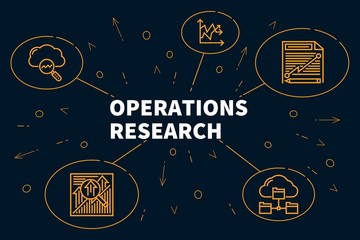
Once voted as the outstanding professor of the year by The Women’s College students, Rotimi Aderohunmu is a retired associate professor of business information and analytics who taught at the Daniels College of Business, University of Denver. Professor Rotimi Aderohunmu, PhD, taught and performed research in subjects including mathematics for business, systems simulation, operations management, and operations research (OR).
An applied science, OR deals with decision-making that commonly involves the appropriation and management of limited resources. These problems are typically encountered in the operations of organizations, including financial institutions, health care entities, industrial firms, transportation networks, and government. OR is an analytical method of problem-solving. Problems are dissected into fundamental elements and then solved in prescribed procedures using mathematical analysis.
Operational research analysts develop a mathematical system model and then evaluate and forecast the outcomes of different approaches to running the system. The analysis may use probabilistic and statistical methods, mathematical optimization techniques, computer simulations, and experiments.
